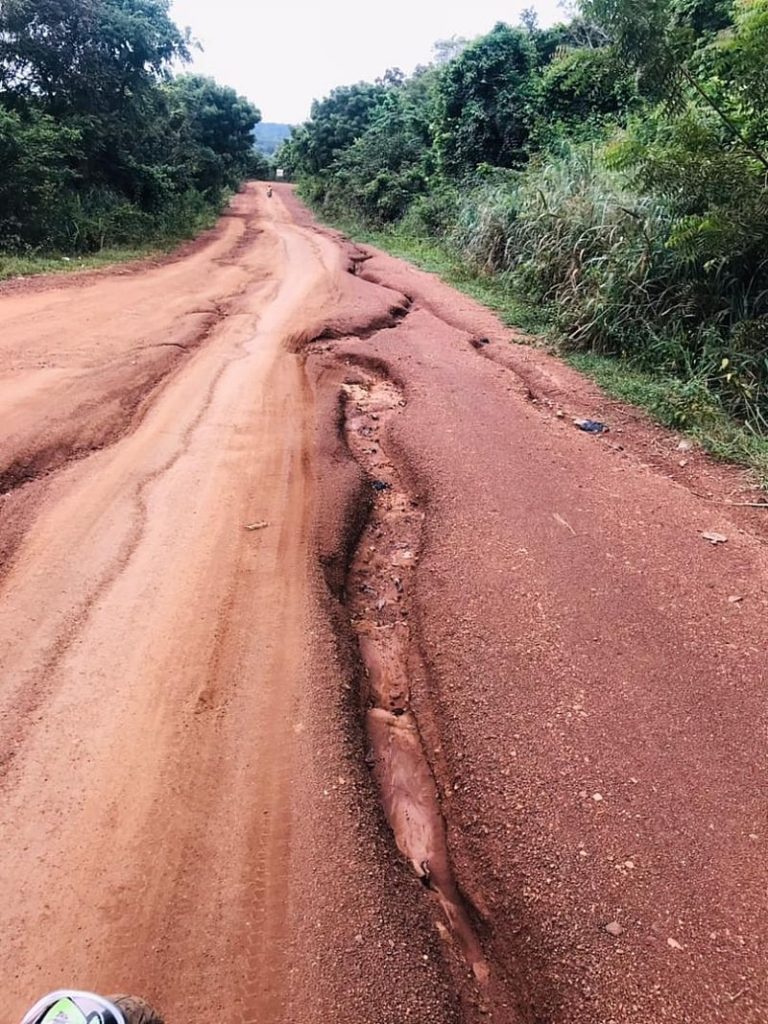The Kpando Torkor Electoral Area in the Volta Region of Ghana is grappling with a severe infrastructural challenge: a rapidly deteriorating road network. This critical issue, highlighted by Assemblymember Hon. Joshua Amenyogbe, presents a significant obstacle to the community’s socio-economic development and poses a direct threat to the livelihoods of its residents. Mr. Amenyogbe’s plea for urgent government intervention underscores the long-standing neglect of this vital infrastructure, a neglect that has spanned multiple administrations and perpetuated a cycle of hardship for the people of Kpando Torkor. The deplorable road conditions have far-reaching consequences, affecting not only transportation but also health, commerce, and overall community well-being.
The dilapidated roads have resulted in a cascade of negative impacts. Frequent vehicle breakdowns have become commonplace, adding financial strain to an already struggling community and disrupting the flow of goods and services. The precarious state of the roads also poses serious health risks, particularly for pregnant women, with reported cases of miscarriages attributed to the arduous journeys. The difficulty in accessing healthcare facilities further compounds the health challenges faced by the community. Moreover, the poor road conditions have severely hampered economic activities, isolating farmers and traders from crucial markets, and stifling business growth. This economic stagnation deepens poverty and limits opportunities for sustainable development.
The plight of the Kpando Torkor community is exacerbated during the rainy season when the roads become virtually impassable. This seasonal worsening dramatically increases the isolation of the community, further restricting access to essential services and preventing the smooth flow of trade. The increased difficulty in traversing the roads also forces commercial drivers to raise transportation fares to compensate for the heightened wear and tear on their vehicles. This, in turn, places an additional financial burden on residents who already grapple with the economic hardships caused by the poor road network. This cyclical impact further entrenches the community in a cycle of economic vulnerability.
Hon. Amenyogbe’s impassioned appeal to the government highlights the urgent need for intervention. He argues that rehabilitating the road network is not merely an infrastructural improvement but a crucial investment in the community’s future. Improved roads would not only alleviate the current transportation challenges but also stimulate economic growth by facilitating trade and access to markets. Moreover, better roads would significantly improve access to healthcare, education, and other essential services, thereby enhancing the overall quality of life for the residents of Kpando Torkor. The Assemblymember’s plea represents a call for a fundamental shift in the community’s fortunes, a shift made possible by strategic investment in vital infrastructure.
Recognizing the critical need for improved road infrastructure in the Volta Region, the Ghanaian government has initiated a significant road development project under the “Big Push” initiative. Launched on Tuesday, September 16, 2025, this ambitious project encompasses seven road lots covering various districts and municipalities across the region. The project, slated for completion within 24 months, signals the government’s commitment to addressing the long-standing infrastructural deficit that has hampered the region’s development. This comprehensive approach to road development aims to improve connectivity, boost economic activity, and enhance the quality of life for residents in the Volta Region.
The “Big Push” road project represents a significant step towards addressing the urgent needs of communities like Kpando Torkor. The successful completion of this project holds the promise of transforming the lives of residents by providing reliable and accessible roadways. Improved transportation infrastructure will facilitate trade, connect communities to essential services, and unlock opportunities for economic growth and development. The project also reflects the government’s commitment to investing in infrastructure as a catalyst for socio-economic progress and regional development across the Volta Region, paving the way for a more prosperous and interconnected future.














